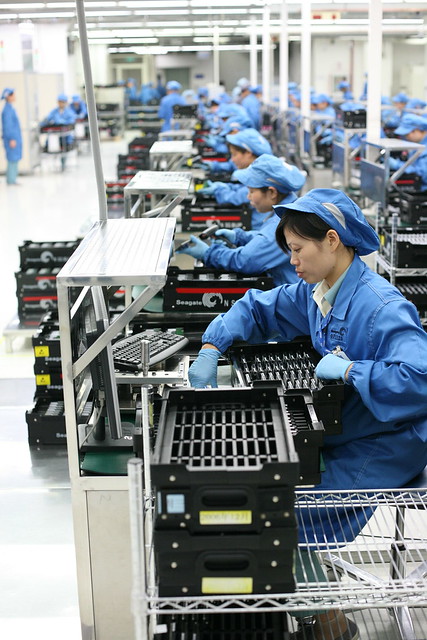Photo credit: Robert Scoble (Creative Commons)
I have a friend who works in the car spare parts manufacturing industry. He’s always busy at work but once in a while when we catch up and talk about work, I find him mostly complaining about his workforce. His assembly line is mostly high school dropouts fit to be day laborers. Now, if his workforce goes on a strike, it’s a huge revenue drain to the company due to hourly work that is pending. So, if he can get his staff to be present only at times, it’s more than enough for him to break even.
Contrast that to programmers, who are mostly called cookie cutters. I admit that most manufacturers of a device, usually give the same features so there is no rocket science involved to program the device and even then if your programmer is delaying for a similar piece of work then you need to worry.
. It may take a break or even, some time away from office, to get the logic. I usually provide flexible timings to the team I supervise and I also do set deadlines which takes care of the breaks,etc. You need to evaluate them based on whether they can get the job done or not, within the time frame available, in or out of office. Otherwise, you do not need them in office, unless your charging for internet or using the programmer for manual labor.
Generally on site, system integrators feel that if the programmer is at the site, then the site work will magically finish even if the site is not manually tested or if the connectivity is not completely done. Despite, making the programmers work on weekends or late nights, the system integrator can provide an adequate time estimate for the work and also educate the end user about the same who otherwise feels that programming is just ‘Plug and Play’.
In your company, do you have the luxury of flexible shifts and breaks? Please comment below.

